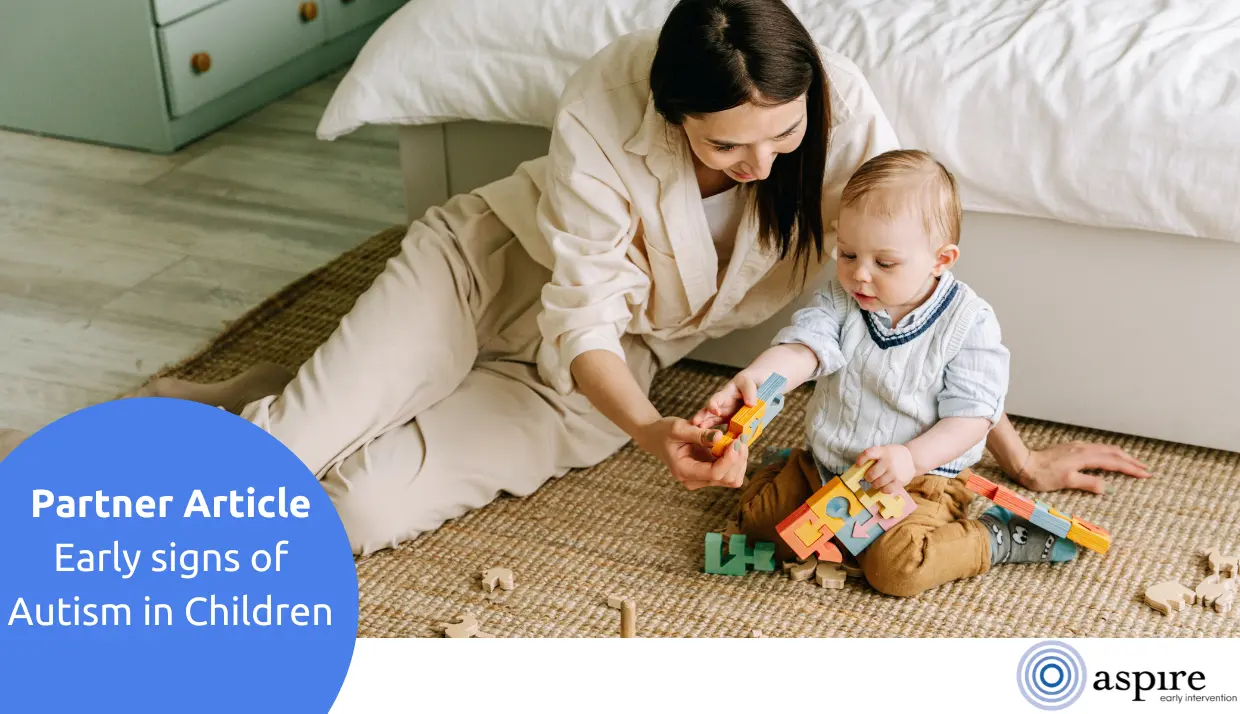As a parent, noticing the early signs of autism or global developmental delay in your preschooler can be challenging but crucial for their development. Early intervention can make a significant difference.
Here are five potential signs of autism in children and what to look for
1. Limited Eye Contact and Social Interaction
One of the earliest signs of autism is reduced eye contact. Children with autism may avoid looking directly into your eyes, even during activities that typically engage other children. They might also seem uninterested in interacting with peers or adults, preferring to play alone. They may not respond to their name or not have a reciprocal smile, that is when you smile at them, they may not smile back.
2. Delayed Speech and Communication Skills
While children develop at their own pace, consistent delays in speech and communication skills can be a concern. Preschoolers with autism may have trouble forming words, using gestures, or understanding language. They might also repeat words or phrases (echolalia) rather than using their own words to communicate. They may use words that are out of context such as focusing on letters and numbers rather than able to request for their milk. They may be able to speak but not be able to use those words in a functional or meaningful way with others.
3. Repetitive Behaviours
Children with autism can often exhibit repetitive behaviours. These can include hand-flapping, rocking, or lining up toys in a specific order. These actions are typically performed repeatedly and can be a way for the child to self-soothe or cope with sensory overload. All children can engage in repetitive behaviours, however, these behaviours are more concerning, if these behaviours form barriers to learning new skills, if they often lead to tantrum or other behaviours that impede social engagement, or if they can lead to physical impairment such as prolonged toe-walking.
4. Sensory Sensitivities
Sensitivity to sensory input is another common sign of autism. This might manifest as an aversion to certain sounds, textures, or lights. A preschooler might cover their ears at loud noises, refuse to wear certain clothes, or become upset in bright environments.
5. Difficulty with Changes in Routine
Routine is important for many children, but those with autism may have extreme difficulty with changes. They might become distressed when their schedule is altered or struggle to adapt to new situations. This need for routine can impact their ability to handle everyday transitions.
What to Do If You Notice These Signs
If you observe any of these signs in your preschooler, it’s important to consult with a clinician or early intervention specialist. A diagnosis but more importantly intervention can provide your child with the support they need to thrive. Autism spectrum disorder (ASD) varies widely, and personalised approaches can help your child reach their full potential. Accessing NDIS funding is available for children if they have a delay in two or more developmental domains and a diagnosis can come after that. We know waiting times can be very long and the process arduous. Click here to complete a free screener if you are concerned.
Supporting Your Child
Creating a supportive environment is crucial. Engage in activities that cater to your child’s interests and strengths and create opportunities for learning and communication. Connecting with other parents and professionals can also offer valuable insights and support.
Remember, every child is unique, and noticing these signs doesn’t necessarily mean your child has autism. However, being proactive about their development can ensure they receive the best possible care.
Being aware of early autism signs in preschoolers can empower you to seek help and support for your child. Early intervention can significantly impact their development, helping them lead fulfilling lives. Trust your instincts and reach out to professionals if you have concerns about your child’s development.
By staying informed and proactive, you can make a positive difference in your child’s life, ensuring they have the resources and support they need to thrive.
Other Kiddo articles that may be of assistance when navigating parenthood:
Understanding ECEI and NDIS | Finding the right Support Worker for your Family





